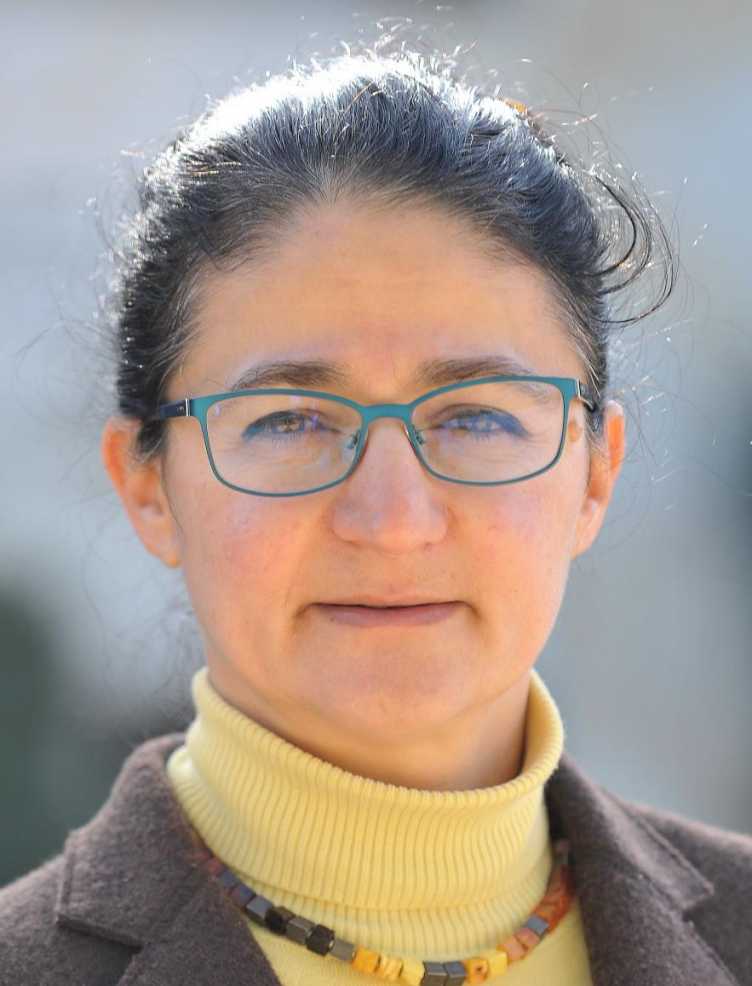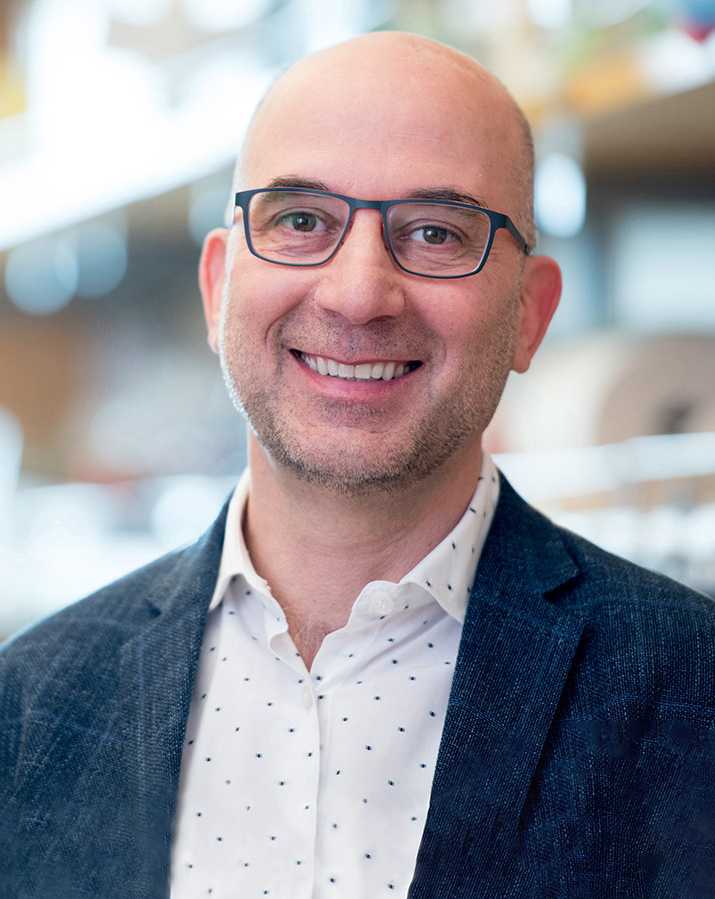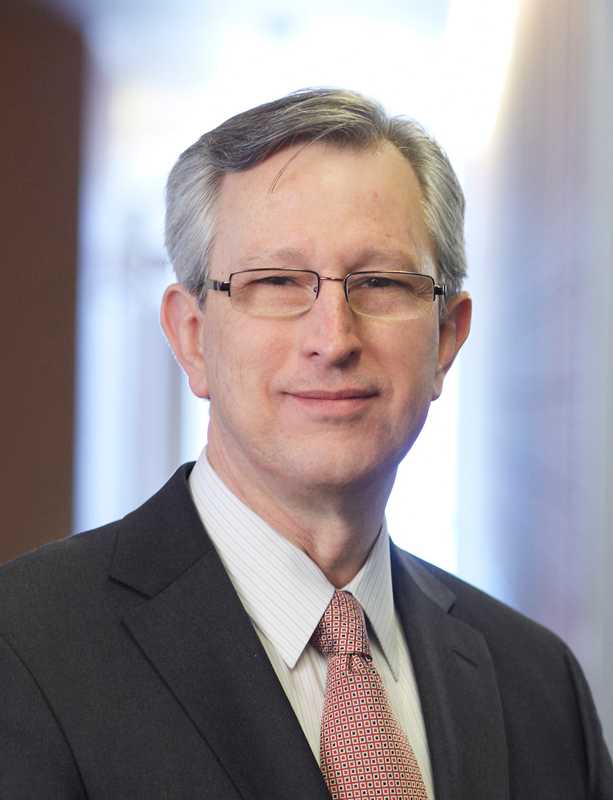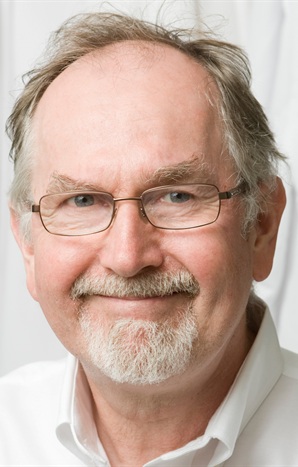ETH Biology Lectures
1997 wurden das D-BIOL-Symposium und die ETH Biology Lecture eingeführt. Beide Veranstaltungen haben zum Ziel, den wissenschaftlichen Austausch in der D-BIOL Forschungsgemeinschaft zu fördern. Für die ETH Biology Lecture werden jedes Jahr hochkarätige internationale Forscher als Referent:innen eingeladen.
Aufgrund einer Verschiebung und der Corona-Pandemie haben zwischen 2019 und 2021 keine ETH Biology Lectures stattgefunden.

2024
Nathalie Q. Balaban’s research interests focus on the development of experimental and theoretical approaches to the study of single-cell heterogeneity, and the determination of its role in disease and evolution. She has pioneered the use of microfluidic devices and automated setups to study quantitatively the heterogeneous response of bacteria to antibiotics. Her work revealed the evolution of tolerance to antibiotics and the subsequent evolution of resistance, both in vitro and in patients. She has won the Krill prize from the Wolf foundation. She is an elected member of the European Academy of Microbiology, the Israel Physics Society, an EMBO member and a Fellow of the American Academy of Microbiology. Nathalie Q. Balaban has co-founded the Scholar-Teacher program, an initiative for improving science teaching in high schools.
Website of the Balaban lab: externe Seite https://balabanlab.huji.ac.il/
2023
The Weissman lab investigates how proteins fold into their correct shape and how misfolding impacts disease and normal physiology. They also build innovative tools for broadly exploring organizational principles of biological systems. These include ribosome profiling, which globally monitors protein translation, CRIPSRi/a for controlling the expression of human genes and rewiring the epigenome, and lineage tracing tools, to record the history of cells.
Website of the Weissman lab: externe Seite https://biology.mit.edu/profile/jonathan-weissman/

2022
The Massagué lab is interested in metastasis, the cause of 90% of cancer deaths. The lab investigates metastatic stem cells and their stromal niches. The role of immune regulatory and regenerative signals, particularly TGF-β, is of interest. General as well as organ-specific mediators of metastasis are under investigation. The Massagué lab is defining the phenotypic plasticity and evolution of metastatic cell populations from dormancy to outbreak, identifying drug targets, and enabling clinical trials to treat metastasis.
Website of the Massagué lab: externe Seite https://www.mskcc.org/research/ski/labs/joan-massague

2018
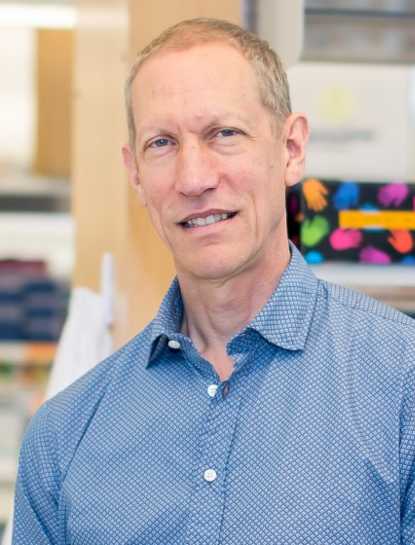
- Lecturer: Philip Benfey, Investigator, Howard Hughes Medical Institute and Kramer Professor of Biology, Duke University, North Carolina
- Title: Underground Networks: Regulation of Plant Root System Form and Function
- Date, time, place: 20 September, 5:15 p.m., HCI G 7
- Host: Institute of Molecular Plant Biology
The Benfey lab studies the development of plant roots and root system architecture as a model system for understanding the regulation of developmental patterns of cell types more generally. Using genetic and genomic approaches, Benfey’s team deciphers how stem cell populations generate various cell types and how they integrate on a molecular level to create a functioning organ. Long term, Benfey aims to identify the genes that control root system architecture, which could lead to enhanced root traits – for example, increased drought tolerance or nutrient acquisition.
Website of the Benfey lab: externe Seite https://sites.duke.edu/benfey

2017
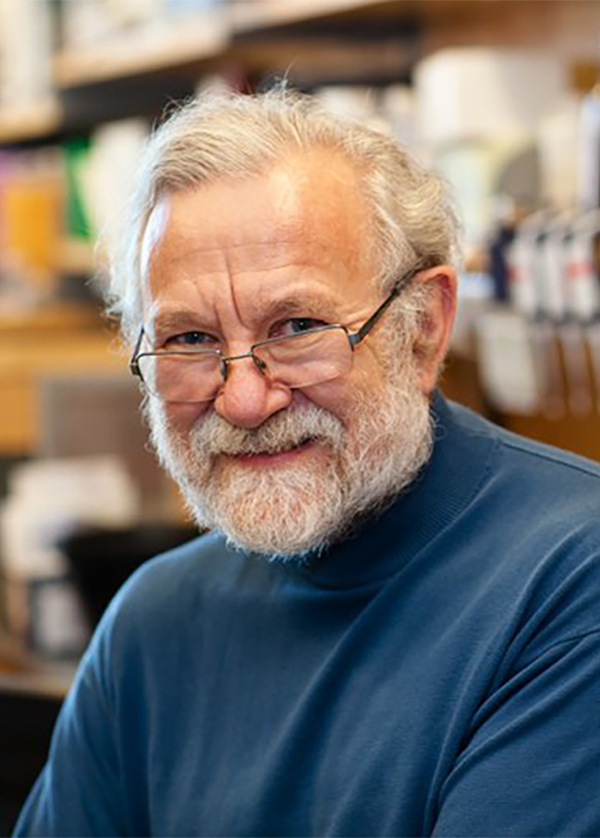
- Lecturer: Peter Walter, Investigator, Howard Hughes Medical Institute and Distinguished Professor, UCSF Department of Biochemistry & Biophysics
- Title: From Protein Folding to Cognition: The Serendipitous Path of Discovery
- Date, time, place: 28 November, 5:15 p.m., HCI G 7
- Host: Institute of Biochemistry
The Walter laboratory seeks a molecular understanding of how cells control the quality of their proteins and organelles during homeostasis and stress. They are identifying the machinery and mechanisms that ensure proper protein synthesis, folding, and targeting, as well as the pathways that allow organelles to communicate and regulate their abundance. Additionally, the Walter lab aims to understand how the rewiring of these processes leads to, or prevents the progression of disease. It uses a diverse array of techniques, ranging from biochemical reconstitution to genetics, to fuel its search for fundamental discoveries in cell biology.
externe Seite Website of the Walter lab.

2016
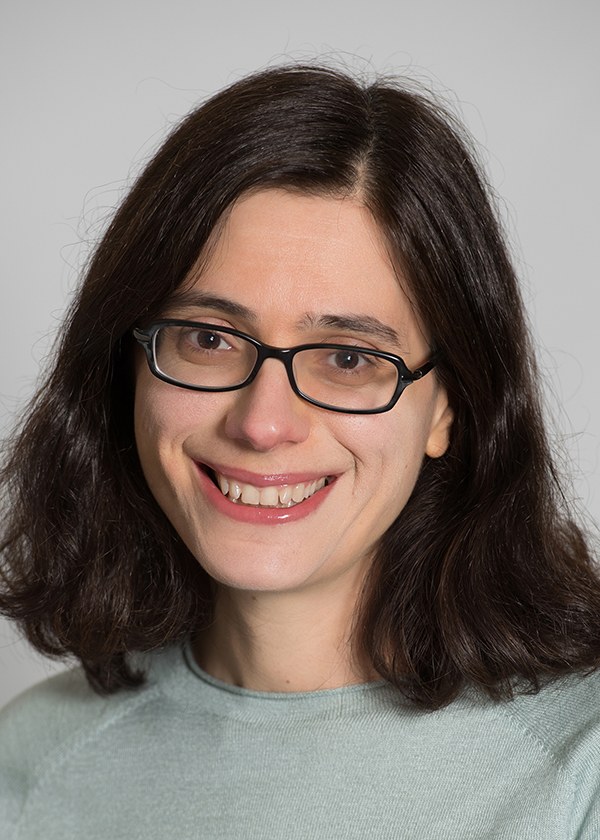
- Lecturer: Aviv Regev, Associate Professor of Biology at MIT and Core Member of the Broad Institute
- Title: Reconstructing Regulatory Circuits: From Cells to Tissue
- Date, time, place: 21 November, 5 p.m., HCI G 3
- Host: Institute of Molecular Systems Biology
Aviv Regev and her colleagues develop experimental and computational approaches to systematically decipher the mechanisms that underlie the transcriptional regulatory circuits in organisms ranging from yeast to humans.
Regev lab members study how these transcriptional circuits change on a variety of timescales: for example, when cells respond to changing growth conditions (within hours); when cells differentiate (within hours to days); and when species evolve (across millions of years). These studies yield detailed reconstructions and highlight key principles that govern the emergence of novel functions in gene regulation.
externe Seite Website of Aviv Regev.

2015

- Lecturer: John Reed, Head of Pharma Research & Early Development (pRED), Roche
- Title: Mechanisms regulating cell survival and cell death: From laboratory to clinic
- Host: Institute of Molecular Health Sciences
Dr. Reed has been an exceptional creative and innovative force in both basic discovery and translational research for more than two decades. He has founded an entire field through the discovery of the molecular and genetic underpinnings of programmed cell death control in cancer and championed academic drug discovery to translate the best of fundamental research into therapeutic application. He has also been leading the path in identifying core molecular principles underlying inflammatory signaling and autoimmune diseases. The fields of programmed cell death and inflammation have become major realms of biomedical research, central to both fundamental biology and the understanding of a broad range of human diseases ranging from cancer to neurodegenerative diseases and diabetes.
After serving first as the Director of the Sanford-Burnham Medical Research Institute and since 2002 as its President and Chief Executive Chair, Dr. Reed assumed in 2013 the post of the Head of Pharma Research and Early Development at Roche.

2014
Dr. Flavell’s laboratory studies the molecular and cellular basis of the immune response. His work regarding T cell differentiation led to the discovery of the transcription factor GATA3 as a critical regulator of the Th2 response and the first example of such a molecule
in T helper cell differentiation. Moreover his laboratory has elucidated mechanisms of immunoregulation which prevent autoimmunity and overaggressive responses to pathogens, specifically the role of TGF-β.
Dr. Flavell’s laboratory has discovered the role of several receptor families (such as Toll-like receptors and intracellular Nod-like receptor families) in the innate immune response and in the context of inflammatory bowel diseases (IBD). Most recently he has established a connection between inflammasomes, microbial homeostasis and chronic diseases. He showed that inflammasome dysfunction causes dysbiosis of the microbiota which, in conjunction with a susceptible diet, leads to IBD and Metabolic Syndrome, including Obesity, Fatty Liver disease and Type 2 diabetes.
externe Seite Website of Richard Flavell

2013
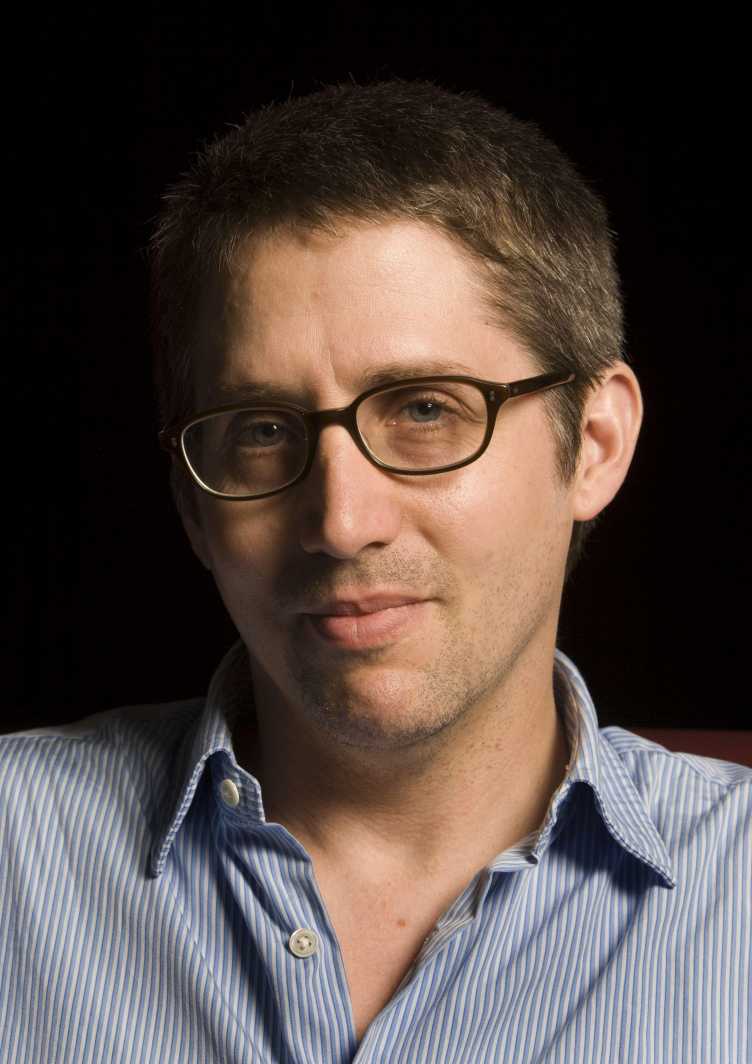
- Lecturer: Eric Gouaux, Vollum Institute, Oregon Health and Science University
- Title: Illuminating the molecular choreography of signal transduction at chemical synapses
- Host: Institute of Molecular Biology and Biophysics
The work in the Gouaux Lab is concentrated on developing molecular mechanisms for the function of receptors and transporters at chemical synapses. At chemical synapses, neurotransmitters released from one neuron diffuse throughout a small space - the synaptic cleft - to receptors on adjacent neurons. At many synapses, the neurotransmitter binds to a receptor that is a ligand-gated ion channel. This binding event leads to the opening of a transmembrane pore, which in turn results in depolarization of the nerve cell and generation of an electrical signal. Neurotransmitter transporters surrounding the synapse clear the transmitters from the cleft by coupling
the thermodynamically unfavorable uptake to the favorable co-transport of one or more sodium ions.
Glutamate, glycine and the biogenic amines are neurotransmitters of particular significance. The Gouaux lab is currently focusing its efforts on eukaryotic glutamate receptors and on bacterial homologs of the transporters for glutamate, glycine and the biogenic amines. The primary tool is x-ray crystallography, but electrophysiology as well as other biophysical and biochemical methods are used.
externe Seite Website of Eric Gouaux

2012
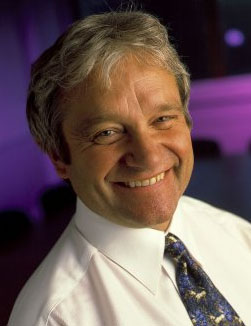
- Lecturer: Sir Paul Nurse, Chief Executive and Director of the Francis Crick Institute, London
- Title: Cell Cycle Control
- Host: Institute of Biochemistry
The laboratory of Paul Nurse is investigating problems of the cell cycle and cell shape using the genetically amenable model organism fission yeast. The group‘s main interests are 1) understanding the molecular mechanisms that regulate cell size and the rate of progress through the cell cycle, 2) regulation of the CDK1 complex during the cell cycle, 3) the molecular mechanisms that determine the overall shape of the fission yeast cell and cell organelles such as the nucleus and 4) how cell growth is regulated during the meiotic and mitotic cell cycles.
To facilitate these studies the lab has identified near genome wide sets of genes required for the cell cycle or cell shape. Many of the investigated genes are conserved in humans and these studies in fission yeast may lead to new insights into the human cell cycle, cell shape and organelle shape processes and lead to new areas of research that may be directly relevant to cancer.
externe Seite Website of Paul Nurse

2011
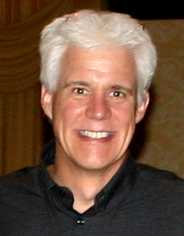
- Lecturer: Eric Olson, University of Texas Southwestern Medical Center, Department of Molecular Biology
- Title: Heart Making and Heart Breaking: Genetic Control of Cardiac Development and Disease
- Host: Institute of Cell Biology
The research interest of the Olson lab is on muscle cells as a model for understanding how embryonic cells adopt specific fates and how programs of cell differentiation and morphogenesis are controlled during development. The focus is on discovering novel transcription factors that control development of the three muscle cell types (cardiac, skeletal and smooth) and remodeling in response to cardiovascular and neuromuscular diseases. The longterm goal of the Olson group is to delineate the complete genetic pathways for the formation and function of each muscle cell type and to use this information to devise pharmacologic and genetic therapies for inherited and acquired muscle diseases in humans.
externe Seite Website of Eric Olson

2009
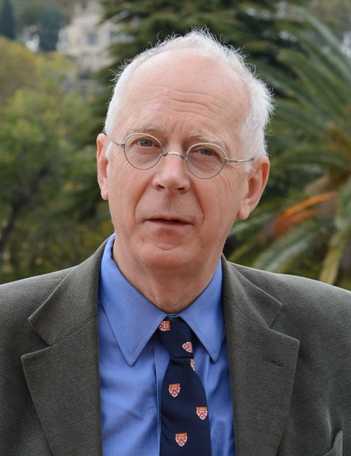
- Lecturer: Sir David Baulcombe, Royal Society Research Professor, Department of Plant Sciences, University of Cambridge
- Title: Small RNA – the dark matter of genetics
- Host: Institute of Applied Plant Sciences
Sir David Baulcombe is a plant scientist and geneticist. He has a long-standing interest in protein-based innate immunity in plants. Together with his colleagues Andrew Hamilton and Olivier Voinnet, he demonstrated that viruses can induce gene silencing, and that some viruses encode proteins that suppress gene silencing. This discovery initiated a paradigm shift in the perception of the ways genes are regulated, and this insight is making possible major new genetic tools for basic research, and for improving agriculture and human health. Sir David Baulcombe received many prizes for his ground-breaking research, several of which he shared with Craig Mello and Andrew Fire, who were awarded the 2006 Noble Prize for their work on interfering RNAs in Caenorhabditis elegans. In 2009 Sir David Baulcombe received the Albert Lasker Award for Basic Medical Research in recognition of his groundbreaking research in gene silencing and small RNA.
externe Seite Website of David Baulcombe
